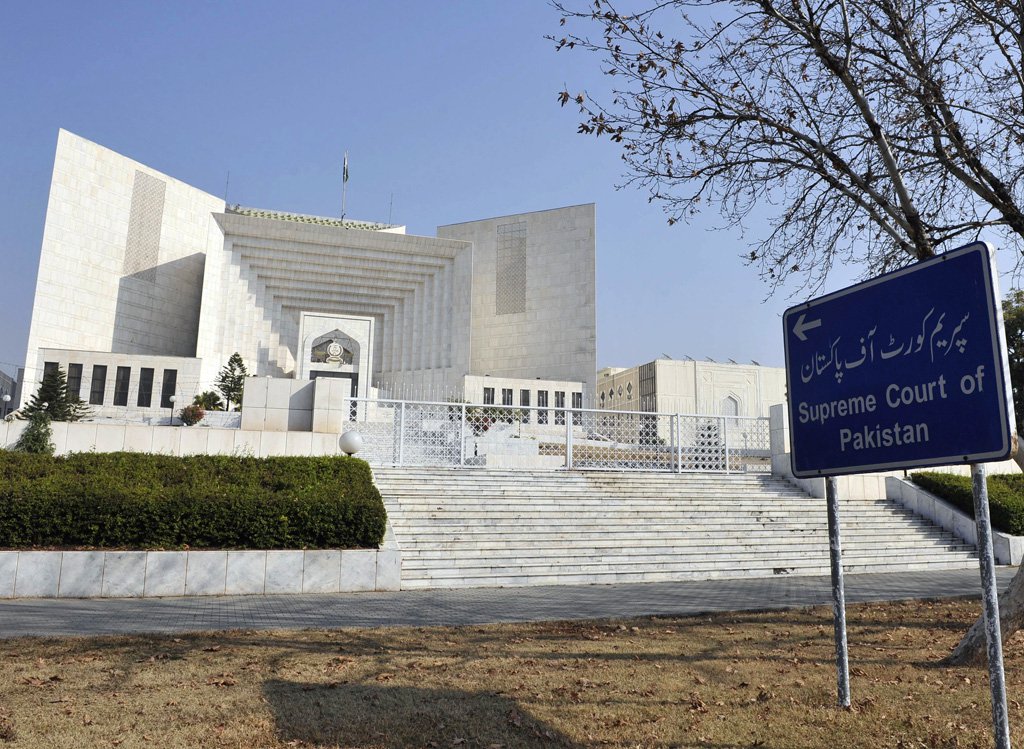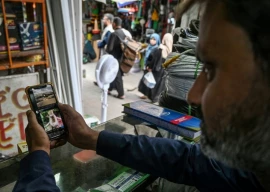
ISLAMABAD:
The top court has objected to imposing conditions while granting bail relief to an accused, stating that the law on grant of bail in criminal cases is by now clearly contoured and well-settled.
A division bench of the Supreme Court, comprising Justice Mazhar Alam Miankhel and Justice Qazi Muhammad Amin Ahmed, noted this while setting aside the Islamabad High Court (IHC) order on a bail request of Saeed Zaman, one of the accused in a massive financial scam.
A judge-in-chamber of the IHC on May 20 granted him bail with a formidable rider to deposit with the court Rs5.16 million, the amount allegedly siphoned off by him.
The court had also asked him to deposit a bond of Rs100,000 as surety. As the petitioner failed to arrange the amount, he moved the apex court seeking exemption from the cash deposit condition.
Justice Qazi Muhammad Amin Ahmed, while authoring a three-page order, noted that the bench was not able to persuade itself to uphold the imposition of a condition.
The order said the law on grant of bail in criminal cases is by now clearly contoured and well-settled.
“The regime is an interlocutory arrangement to ensure physical presence of an accused so as to confront the indictment pending conclusion of the trial, either under judicial custody or with a surety to produce him before the court as and when required.
"In the non-bailable category of offences, grant of bail in crimes punishable with imprisonment of less than 10 years, presumably with charges on the lower side of gravity scale, the release of an accused, after conclusion of investigation is a rule.
However, even in appropriate cases, the court may still validly decline the concession."
The order said in offences punishable with death or imprisonment of 10 years or above, the accused cannot be released on bail unless he succeeds in making out a case calling for further probe.
The court noted that in the event of his release on bail, the court may require an accused to execute a bond either personally or through sureties amount whereof “shall be fixed with due regard to the circumstances of the case, and shall not be excessive.”
"The bond by the accused or the sureties, as the case may be, has to be executed to ensure compliance, contemplated by Section 499 of the Code of Criminal Procedure 1898".
The order said in case the court considers it expedient to release an accused on bail pending conclusion of his trial, it can certainly require him to execute a bond either personally or through sureties, setting conscionable amounts therein.
“[The court does this] having regard to the facts and circumstances of each case with a view to ensure future attendance and may proceed to forfeit such bond in the event of default/non-compliance as contemplated by Section 514 of the Code.”
The bench noted that the code does not envisage cash deposit except for an undertaking for good behavior within the framework of Section 513 thereof.
“The interlocutory arrangement cannot be equated with the final adjudication of a criminal case, to be essentially settled on the strength of evidence with all procedural safeguards to conveniently enable the accused to vindicate his position without any embarrassment.
“During pendency of the process, he can secure interim freedom only if a case for his release is made out and in such eventuality, he cannot be additionally coerced to surrender or deposit amounts, forfeiture or settlement whereof is consequent upon final adjudication, that too, subject to the law.”
The court said the statutory arrangements are founded on the paramount principle of equality before law as well as equal protection thereof.
“Protection and equality that are not shadowed by the divergent financial capacities of different accused, otherwise found entitled to freedom, interim or ultimate, without strings,” the order said.
The court set aside the IHC order and referred the matter back to the high court for a fresh decision in accordance with law on the available grounds.





















































COMMENTS
Comments are moderated and generally will be posted if they are on-topic and not abusive.
For more information, please see our Comments FAQ